Iran Calendar 2025 - Full List of Public Holidays, Observances And Celebrations
Overview of Holidays and Festivals in Iran
The Gregorian calendar is used for international events and Christian holidays in Iran, while the Lunar Hijri calendar is used for Islamic holidays. The Solar Hijri calendar serves as the primary national calendar.
In Iran, the weekend falls on Thursday and Friday since the week begins on Saturday. On the Iranian calendar, a few days are designated as national holidays. There are a lot of these days, which can complicate travel planning. These are holidays that many Iranians look forward to, so there may be a lot of people visiting the locations you visit. NOWRUZ, the Persian new year celebrated on the first day of Farvardin Persian month on March 21, is one of the biggest of them all.
During the four days leading up to Iranian New Year, the nation observes an official national holiday. The first and second of April are also two continuous official holidays. The majority of Iranians travel primarily during the interval between the two above times. Iranian weekends, which fall on Thursday and Friday and sometimes last from March 24 to March 31, can be quite long. Practically speaking, most domestic travelers need more than two weeks to complete this vacation. They begin their journey before the first of the year, usually on March 18 or 19, and continue until April 3 or 4, sometimes taking longer.
"[The] problem of too many annual public holidays has perpetually been a subject of concern," the Iranian government's English-language newspaper Iran Daily wrote in 2008. It pointed out that the government would often declare "unofficial holidays to allow extended weekends" around the national holidays.
NOTE: Before making travel plans, confirm the national holidays in Iran with locals—your tour operator or guide—as many of them are linked to the Islamic calendar and Arabic months. These kinds of vacations may affect the quality of your travels.
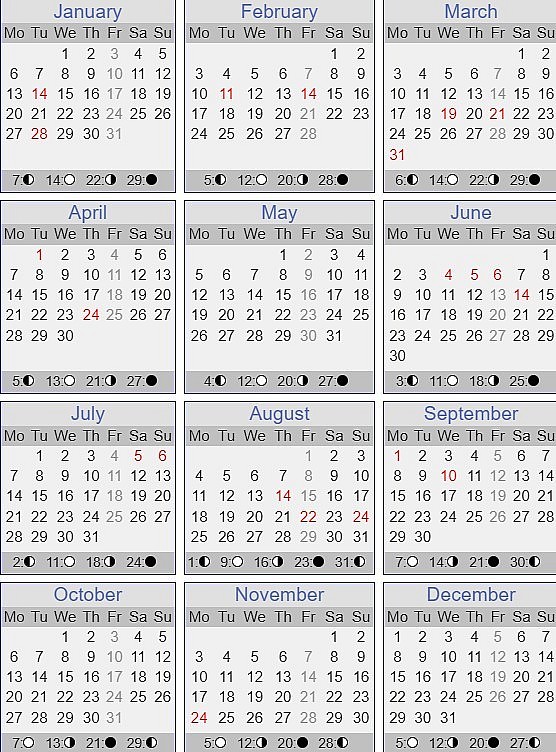 |
| Calendar 2025 for Iran |
Full List of Public Holidays and Observances in Iran for 2025
Birthday of Imam Ali/Father's Day, National Holiday, 14 Jan Tuesday
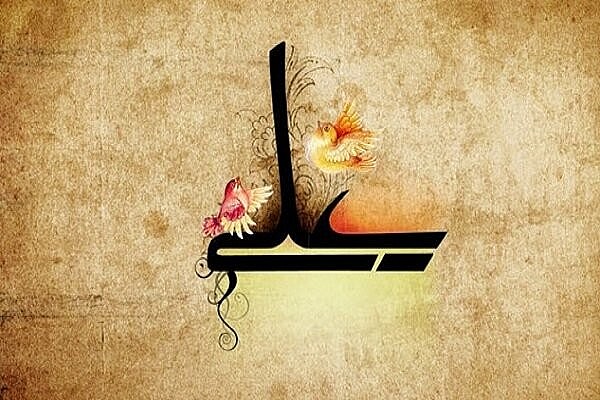 |
| The birthday anniversary of Imam Ali |
The Islamic Republic of Iran celebrates Imam Ali's birth anniversary on the thirteenth day of Rajab.
Early Islamic Imam Ali ibn Abu Talib was important. His father-in-law was Muhammad. Shiites, like most Iranian Muslims, believe Ali was the first Imam.
Around A.D. 599, Ali was born in Mecca in the Kaaba, Islam's holiest place. Many Islamic historians consider Ali the first male convert to Islam after Muhammad. After that, he was Muhammad's main general and warrior. He married Muhammad's daughter Fatima.
Ali succeeded Uthman as Muslim Caliph, but he was assassinated in Kufa, Iraq, in A.D. 661 with a poison-lined sword while praying in the Great Mosque. Shia and Sunni Muslims honor him as a martyr in different ways.
Learn more: Top 10 Most Beautiful Iranian Women Today: Attractiveness Behind the Hijab
Father's Day in IranIn the Persian calendar, Imam Ali's birth anniversary falls on Father's Day. Parents have a high status in Islam, and Muslims are regularly commanded by the Holy Quran to honor, respect, and obey their parents. Iran observes Father's Day as a national holiday. On this day, many people look for ways to honor their fathers and show their gratitude. They seize the chance to spend more time with their grandfathers and fathers, and they frequently show their appreciation and show their respect by giving them gifts and flowers. |
Prophet's Ascension, National Holiday, 28 Jan Tuesday
The Ascension of the Prophet is recognized as a public holiday. Today marks a cessation of regular activities for the general populace, with educational institutions and the majority of commercial enterprises remaining shuttered.
The Prophet's Ascension in Iran is considered one of the significant events. Individuals across various age demographics, encompassing men, women, and children, engage in meticulous planning well in advance of the event. Individuals residing in various cities and towns engage in unique preparations for the occasion. In Iran, one can observe a commendable coexistence of religious and cultural elements.
Islamic Revolution Day, National Holiday, 11 Feb Tuesday
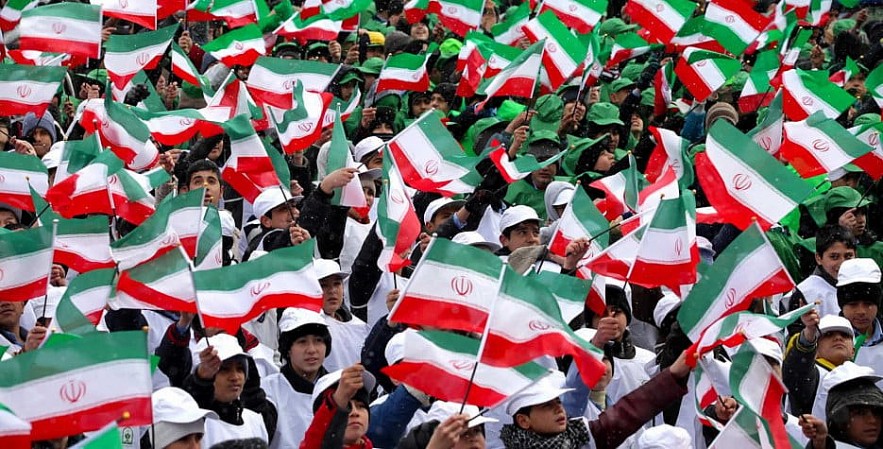 |
| Islamic Revolution Day in Iran |
Iran's Islamic Revolution Day is on the 22nd day of the Persian month of Bhaman. It is a public holiday. This means that in the western calendar, it is on February 11.
This day is the National Day of Iran and marks the start of the Islamic Revolution in 1979. In Iran, it is called Bahman 22nd.
Large rallies and marches happen every year on February 11 through the boulevards of Iran's cities to honor Ayatollah Khomeini and the people who died fighting for independence and to remember those who died serving him.
In Tehran, the marches end at Azadi Square, also known as "Liberty Square," which has become the center of celebrations every year. There are also fireworks shows in the evening to mark the day.
Imam Mahdi's birthday, National Holiday, 14 Feb Friday
Iran celebrates Imam Mahdi's birthday on Mid-Sha'ban, the fifteenth day of the eighth month of the Islamic lunar calendar.
The Islamic calendar is 11 days shorter than the western calendar; see our table for the date.
Twelver Shia Islam's 12th and final Imam was born on this day.
Shiite Muslims, who revere Imam Mahdi, consider the occasion crucial.
People decorate and light up streets and gather in mosques and other religious sites across Iran to celebrate this auspicious occasion.
In Tehran, roadside makeshift booths sell tea and sweets.
Most major Iranian businesses are closed on this public bank holiday.
In some Islamic countries, Mid-Sha'ban is celebrated as Shab-e-Barat, a night when Muslims believe Allah descends to earth and forgives sinners and decides men's fortunes for the year.
Ramadan Start, Observance, 1 Mar Saturday
The ninth month in the Islamic calendar is called Ramadan, sometimes referred to as Ramadhan or Ramzan. Muslims all across the world dedicate this time to prayer, fasting, charitable giving, and religious observance. Since it marks the occasion when the Prophet Muhammad (also known as Muhammad or Muhammad) received the first revelations of the Koran (also known as the Qu'ran), the final third of Ramadan is especially sacred.
Ramadan Start is not a public holiday. Businesses have normal opening hours.
Oil Nationalization Day, National Holiday, 19 Mar Wednesday
 |
| Oil Nationalisation Day in Iran |
Iran celebrates Oil Nationalization Day on March 20. The public holiday commemorates the 1951 Iranian parliament vote to nationalize the oil industry. This ended Britain's 40-year Iran oil monopoly.
Iran was the first Middle Eastern nation to control its oil industry, which helped spread anti-colonialism.
Iran closes schools, offices, and businesses on Oil Nationalization Day. Politicians usually speak about how the country took control of its oil industry on the day.
Iranian television and radio documentaries often cover their struggle to control one of their biggest imports. The martyrs who fought for Iranian oil rights are also commemorated.
There is still strong anti-American and anti-British sentiment related to the nationalization of Iranian oil because the two countries imposed strict sanctions after the vote.
Britain and the US supported Mohammad Reza Pahlavi, who was more aligned with them, overthrowing Mohammad Mosaddeq, who led the fight to nationalize the oil industry.
Nowruz/Persian New Year, 21 Mar to 23 Mar
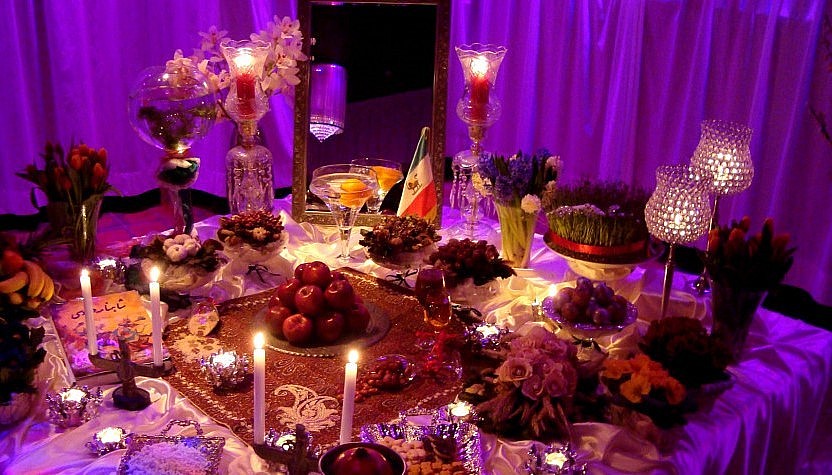 |
| Persian New Year |
The most significant day on the Iranian calendar is Nowruz, which is like Christmas and New Year combined. The majority of the nation's institutions close for two weeks. Many people take advantage of the time to travel on religious pilgrimages or to see friends and family.
Novruz marks the start of Spring and the Persian New Year. 'New Day' is what Novruz means.
Since Cyrus the Great's reign (538 BC), Nowruz has been observed as a national holiday in Iran, where it is marked by customary festivals. Iran was the only nation to observe Nowruz officially prior to the fall of the Soviet Union.
It's customary to visit your loved ones' houses on Nowruz, going from the oldest to the youngest. It is your responsibility to see as many family members as you can.
Despite attempts by the authorities to put an end to it and the large number of injuries it causes annually, the Fire Festival on the Tuesday before Nowruz is still a widely observed tradition. The fire festival also includes an Iranian custom in which participants knock on doors in the hopes of receiving buckets of water and a holiday mix of nuts and berries.
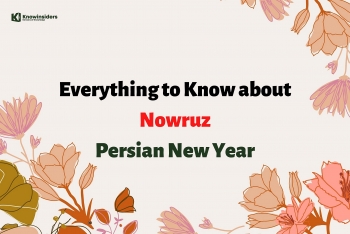 How to Celebrate Persian New Year 'Nowruz': Traditions and Customs How to Celebrate Persian New Year 'Nowruz': Traditions and Customs |
Martyrdom of Imam Ali, National Holiday, 21 Mar Friday
The death of Imam Ali is celebrated as a national holiday in Iran. Today is the anniversary of the day Ali, the son of Abu Talib, died. Shiites believe that Ali was the true first Imam of all of Islam. On the Gregorian Calendar, the holiday is held on a different day every year. This year it falls on 21 Ramadan.
Ali is a very important person for all Muslims around the world. He is the son of Muhammad's daughter Fatima and the first man to become a Muslim because of Muhammad's teachings.
In A.D. 656, Ali became Caliph over the lands that Muhammad and Uthman had taken over before him. But just five years later, he was killed with a sword that was poisoned. After two days, he died.
Every year on this holiday, people in Iran take the day off to remember Imam Ali. They can also go to their local mosque to pray, read the Koran, and hold special events.
Eid-e-Fetr (End of Ramadan), National Holiday, 31 Mar Monday
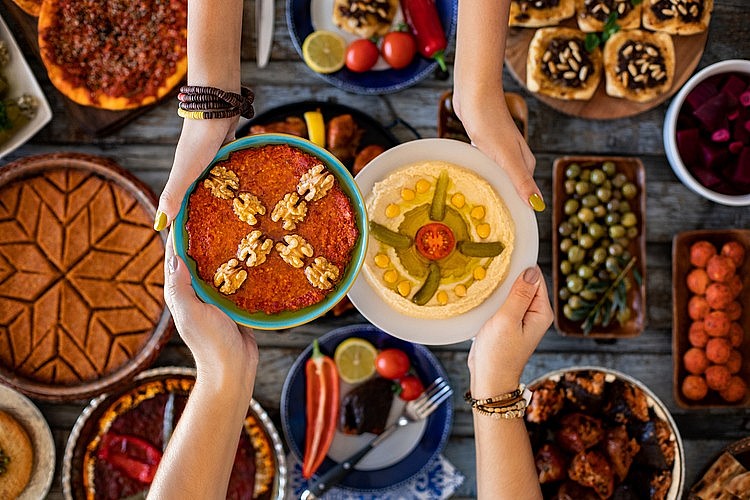 |
| Eid ul Fitr is a time to share great food with family and friends. |
Eid ul Fitr signifies the conclusion of Ramadan, the Islamic holy month of fasting and prayer, for Muslims worldwide. Within the Islamic calendar, it is one of the biggest and most significant holidays.
The end of Ramadan, or Eid-e-Fetr, is a public holiday. The majority of businesses and schools are closed, and most people have the day off.
Islamic Republic Day, National Holiday, 1 Apr Tuesday
Iranians celebrate Islamic Republic Day, a public holiday, on the twelfth day of the first Persian month, Farvardin. This usually indicates that, according to the western calendar, it is observed on April 1.
This occasion honors the anniversary of the Islamic Republic's founding in 1979.
Many disapproved of Iran's pro-Western policies, which had been established by the British and then reinforced by the US, which resulted in a sitting line of kings. A rebellion began in 1978 with the intention of toppling the Pahlavi Regime and establishing Iran's "Islamic Republic." The Iranian economy was eventually completely destroyed by strikes and protests, which forced the government to cooperate.
It was decided that Iran would either remain a monarchy or become an Islamic republic through a referendum. On March 30 and 31, about 98% of Iranians selected the latter over the former. And the Iranian Islamic Republic was formally proclaimed the next day, April 1. Two months later, April 1st was designated as a national holiday under the name "Islamic Republic Day."
Iran observes April 1st as a day off from work, and many people choose to spend the day with friends and family at home. Nationwide, there are also a lot of demonstrations, activities, and educational initiatives.
Eid-e-Fetr (Additional Holiday), National Holiday, 1 Apr Tuesday
Iranians celebrate Eid al-Fitr with religious fervor and fun. The national holiday begins on the first day of Shawwal, the Islamic month of fasting, prayer, and devotion after Ramadan. One of the most important Muslim holidays.
Tehran hosts national prayer services for Eid al-Fitr, one of Iran's most important Islamic holidays.
However, smaller towns and rural areas of Iran celebrate Eid al-Fitr more enthusiastically. Namaz Eid, Zakat Al Fitr, and forgiving are common Eid practices.
The family will hold a special Eid with food and visitors for a deceased relative if they die soon before Eid. In addition, TV and radio specials for Eid are playing, and people may take a few days off work.
Nature Day, National Holiday, 1 Apr Tuesday
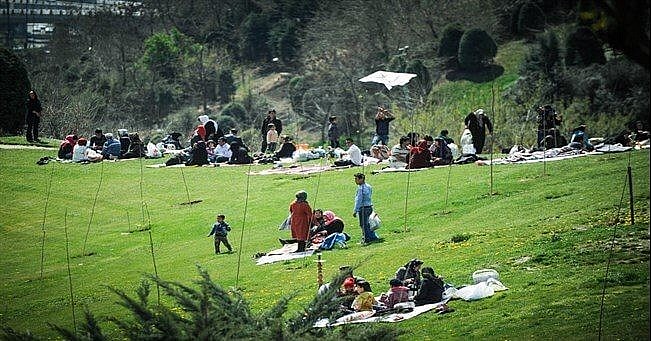 |
| Iranian Nature’s Day |
Sizdah Bedar is an Iranian public holiday. Nature Day is celebrated on the 13th day of Farvardin, April 2nd in normal years and April 1st in leap years.
Sizdah means thirteen, and 'Bedar' means to get rid of, meaning 'getting rid of thirteen'. Nowruz, which begins on spring's first day, ends on Sizdah Bedar.
Iranian families go on picnics and release Nowruz green shoots into a stream or river to celebrate the ancient festival.
Iran, like many cultures, considers 13 unlucky. Iranians believe that going outside welcomes spring and erases the bad luck of thirteen.
Many consider where to spend Sizdah Bedar on the eve. Some celebrate in parks, others in the countryside, and others in gardens. Families often plan to spend the day outdoors. Joy and laughter are believed to cleanse the mind of evil, and picnics are happy occasions.
Nature Day traditions include tying knots in the grass to strengthen life-nature relationships and fulfill wishes.
People spend the day playing traditional games, singing, listening to music, chatting, or relaxing by the river. Eat lettuce with sekanjebin, an Iranian drink, and cook local foods. Joy of the day is supposed to ward off evil brought by the unlucky number thirteen.
Martyrdom of Imam Sadeq, National Holiday, 24 Apr Thursday
In the Islamic Republic of Iran, every 25 Shawwal on the Muslim calendar is a national holiday to remember Imam Sadeq's death.
People thought of Jafar al Sadeq as Muhammad's successor because he was the sixth Imam in a line of seven. Al Baquir, his father, was the fifth Imam before him.
It was during Al Sadeq's rule that many important Shiite religious beliefs were formed and made more or less permanent. He tried to stay out of politics as much as possible, but many of the Caliphs who were in power at the time were against him.
It is thought by many Shiite sources that Caliph Al Mansur poisoned Al Sadeq around the year 765 because he didn't like Al Sadeq's strong claim to be Caliph. Al Sadeq was buried in Medina, which is now in Saudi Arabia, after he died. The tomb was destroyed in 1926.
Demise of Imam Khomeini, National Holiday, 4 Jun Wednesday
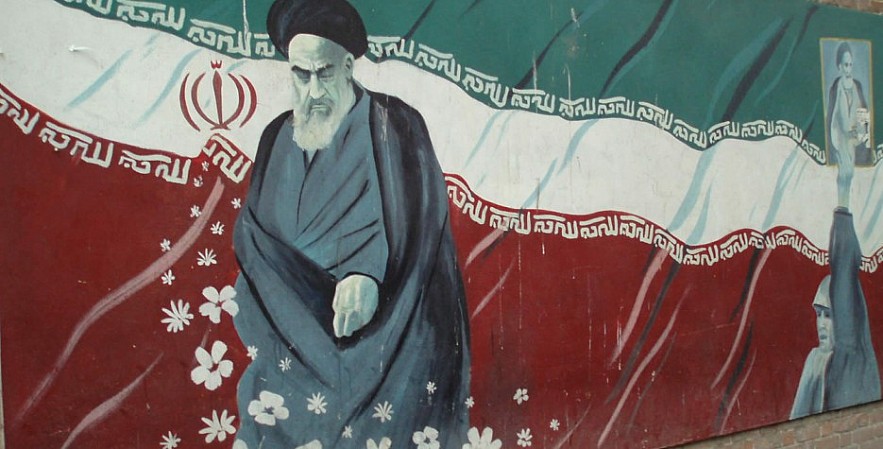 |
| Imam Khomeini |
Every year on June 4th, Iran celebrates the Demise of Imam Khomeini as a national holiday.
On the anniversary of his passing in 1989, the founder of the Islamic Republic is honored with this holiday.
Millions of Iranians participate in memorial services across the country on the anniversary of Imam Khomeini's death each year. The ceremonies are also attended by hundreds of foreign guests, including academics and researchers.
Khordad National Uprising, National Holiday, 5 Jun Thursday
Iran celebrates Khordad National Uprising on the fifteenth of Kordad on the Islamic Calendar. Gregorian, or "Western," calendar dates advance by 10 or 11 days each year.
The holiday commemorates 1963 protests that led to the "Islamic Republic". It began when Iran's pro-Western Shah arrested Ayatollah Khomeini for criticizing the government, the US, Israel, and others.
The arrest of Khomeini sparked massive, violent street protests that killed some. The Iranian military and police killed protesters in various cities, sending Khomeini into exile. For now, the Shah won. Khomeini returned 15 years later, overthrew the Shah, and founded the Islamic Republic.
People today view the Khordad National Uprising as a key event in the current regime's rise to power.
Eid-e-Ghorban (Feast of Sacrifice), National Holiday, 6 Jun Friday
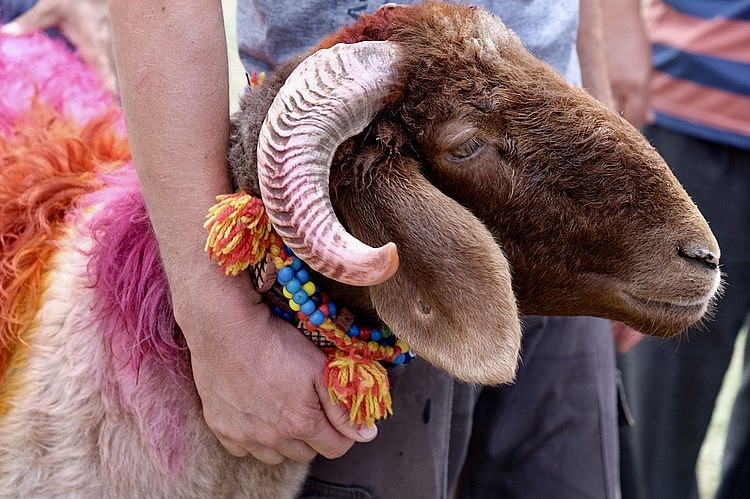 |
| Sheep are among the animals sacrificed on Eid al-Adha |
Muslims offer an animal sacrifice as a sign of their obedience to Allah on Eid al-Adha. A tale from the Quran that is well-known to Christians and Jews serves as the basis for the celebration.
Public holidays are observed on Eid-e-Ghorban, or the Feast of Sacrifice. The majority of businesses and schools are closed, and most people have the day off.
Since it falls on a Friday in 2025, some companies might decide to keep their regular Friday hours.
Eid-e-Ghadir, National Holiday, 14 Jun Saturday
Iran celebrates Eid-e-Ghadir on the 18th day of Dhu al-Hijjah, the last month of the lunar Muslim calendar.
This eid (festival) commemorates Ali's appointment as Muhammad's successor, an important event for Shia Muslims.
Sunni tradition states that the Prophet preached that "to whomsoever I am Mawla, Ali is also their Mawla." Muhammad ordered everyone to pledge allegiance to Ali after the sermon.
After Muhammad died a year after the Farewell Sermon, a constitutional assembly chose Abu Bakr over Ali as the first Rashidun Caliph. Muslims disagreed, believing Ali was the successor. Ali became the fourth and final Rashidun Caliph, but the dispute split Sunnis and Shias.
Shia Muslims believe that fasting on this day equals 60 years of worship. Besides fasting, the day includes prayers, ritual bathing, wearing best clothes, visiting relatives, and feeding believers.
Tassoua , National Holiday, 5 Jul Saturday
The ninth day of Muharram, the first month in the Islamic calendar, is known as Tasoua, sometimes spelled Tasua or Tasu'a. It marks the eve of the martyrdom of Imam Hussein, the third Shia Imam.
Iran observes Tasoua as a major national public holiday, on which all museums and historical and cultural sites are closed.
Ashura is the day that follows. Over 1,300 years ago, on this day, Imam Hussein and 72 of his devoted allies were martyred in the Battle of Karbala in Iraq.
The Grand Bazaar of Tehran and the Holy Shrine of Imam Reza in Mashhad both host sizable mourning rituals.
Tosoua is also the date of the religious and traditional 40 Minbar ritual, in which women cover their faces, recite zikrs, or prayers, to God, and light candles in remembrance of the Karbala martyrs.
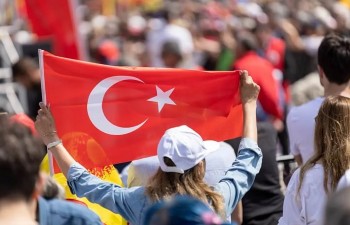 Turkey Calendar in 2025 - Full List of Public Holidays, Religious Days And Celebrations Turkey Calendar in 2025 - Full List of Public Holidays, Religious Days And Celebrations |
Ashura, National holiday, 6 Jul Sunday
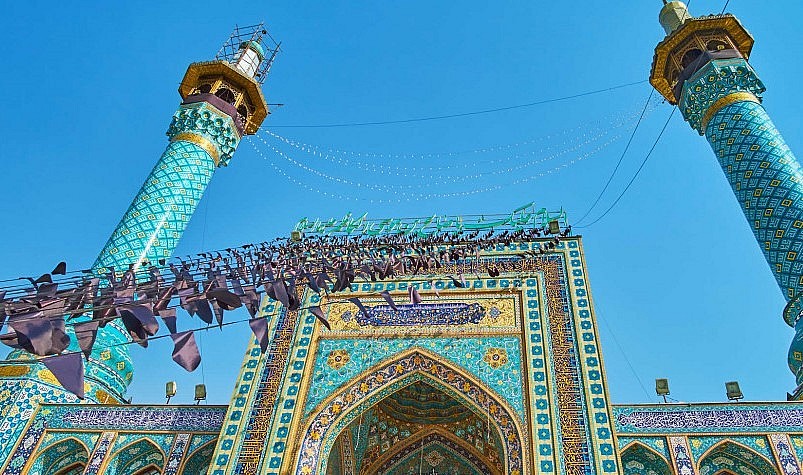 |
| Turquoise tile portal and minarets of Imamzadeh Saleh Holy Shrine are covered with fine Persian patterns and decorated with black Ashura flags |
Ashura is the 10th day of Muharram in Islam. It commemorates Muharram but not the Islamic month.
A'ashura was an ancient Jewish holiday of celebration and atonement. It marks the day Musa (Moses) freed the Israelites from Egyptian slavery and Jesus' ascension to heaven. Today is believed to be the day God saved Noah and his companions from the genesis flood.
Today, it commemorates Hussain ibn Ali, the grandson of the Islamic Prophet Muhammad (PBUH), who died at the Battle of Karbala in 61 AH (AD 680).
Sunni Muslims believe Moses fasted on this day to thank God for delivering the Israelites from Egypt. Sunni traditions say Muhammad (PBUH) fasted and encouraged others to fast on this day.
Arabic for "the tenth day" is ashura, but Islamic scholars disagree on why.
Both Shi'a and Sunni Muslims mourn Ashura, but Shi'as mourn it more intensely.
Arbaeen, National holiday, 14 Aug Thursday
Arbaeen is a national holiday in Iran.
It is observed on Safar 20 or 21, the 40th day after Ashura, the martyrdom anniversary of Prophet Mohammad's grandson Imam Hussein in 680 AD.
One of the most important Shi'ite Muslim holidays is Arbaeen.
Arbaeen means forty in Arabic because Muslims mourn for forty days after a loved one dies.
The Battle of Karbala in central Iraq killed Imam Hussein on October 10, 680 AD.
His followers believed Hussein was the prophet's heir. He died in battle after refusing to swear allegiance to the Umayyad caliphate, cementing the Sunni-Shiite split. Abbas, Hussein's half-brother, died in battle.
On Arbaeen, millions of pilgrims will gather in Karbala, the world's largest annual gathering. Many barefoot pilgrims from Iraq and over 50 countries make the Ziara pilgrimage. The Ziara draws over three million Iranians to Iraq.
Thousands of Tehranians will march south to mourn at the shrine of Shiite saint Abdul Azim.
Demise of Prophet Muhammad and Martyrdom of Imam Hassan, National Holiday, 22 Aug Friday
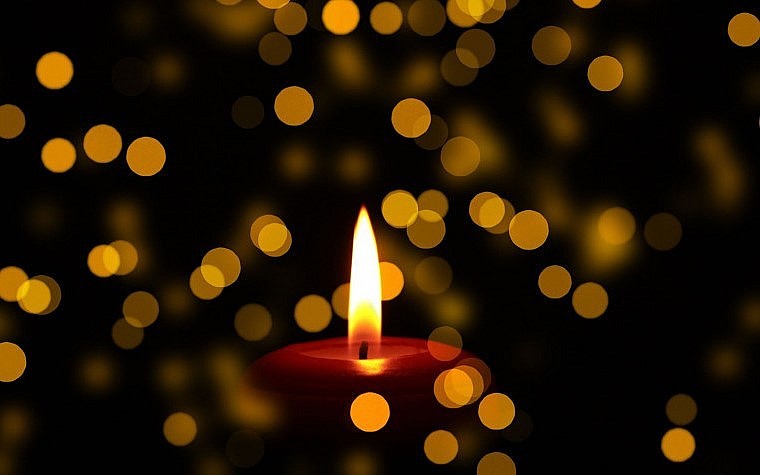 |
| Death of Prophet Muhammed |
In Iran, the 28th day of Safar, the Islamic month, is a public holiday. It honors the martyrdom of Imam Hassan and the death of the Prophet Muhammad, two significant occasions in Shia history.
Death of Prophet Muhammad
Muhammad passed away on Monday, June 8, 632 (14-Rabi al-awwal-11), having established Islam, one of the world's major religions, and ensuring his worldwide and enduring legacy. Even though the cause of his death was not stated, fever is usually thought to be the cause.
The Prophet was buried in Aisha's home, the place he passed away. The area of the burial was extended to become the Prophet's Mosque during the reign of succeeding caliphs. The 13th century saw the addition of a dome over the tomb, and other prominent early Islamic figures were buried within the complex. The tomb was robbed of its gold and decorations when the Wahhabis took over Medina in 1806, but it barely escaped being destroyed—a fate that befell many Islamic graves in the area for morally motivated reasons.
Martyrdom of Imam Hassan
As the elder brother of Husayn and the eldest son of Ali and Muhammad's daughter Fatimah, Imam Hassan was a grandson of the prophet Muhammad. Hasan is regarded as the second Imam by Shia Muslims.
Hussan's wife is thought to have poisoned him in Medina, Saudi Arabia, at the Caliph Muawiya's request in order to secure his son's succession.
During the second Wahhabi conquest of Medina in 1925, the shrine housing Hasan's tomb was destroyed as part of a larger effort to destroy memorials in cemeteries.
Martyrdom of Imam Reza, National holiday, 24 Aug Sunday
The Islamic Republic of Iran celebrates Imam Hasan Asgari's martyrdom. The holiday is celebrated on the eighth day of Rabi ul-Awwal, which varies by year on the Gregorian Calendar.
Shia Islam's eleventh imam is Imam Hasan. He is considered one of Muhammad's most spiritual and political successors.
The tenth imam's son was Imam Hasan, born in 846. His father was found dead after being suspected of conspiring against the Medina Caliph. Hasan was sent to Samarra under arrest to prevent him from spreading Shia Islam in Medina, a Sunni caliphate.
Imam Hasan studied the Koran, Sharia law, and other languages, including Persian, in “captivity”.
Six years after his father's death, Imam Hasan was poisoned. Under Shia Islam, his son Muhammad al-Madhi succeeds him. Another Iranian public holiday is Imam Madhi's birthday.
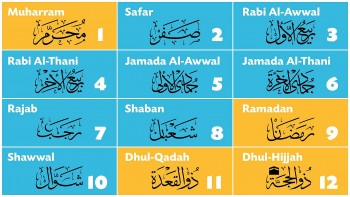 Islamic Calendar in 2025: Important Dates, Holidays, Observances and Celebrations Islamic Calendar in 2025: Important Dates, Holidays, Observances and Celebrations |
Martyrdom of Imam Hasan al-Askari, National holiday, 1 Sep Monday
In Iran, the eighth day of the Islamic month of Rabi Al Awwal is dedicated to celebrating the Martyrdom of Imam Hassan Asgari. The eleventh Imam's life and demise are commemorated on this holiday.
Hassan spent a large portion of his reign in the fortified town of Samarra, which earned him the Arabic term "Asgari," which means "military." Hassan was born into a dispute within Islam involving his father, the Caliph, and the previous Imam. In order to stop him from promoting the spread of Shia Islam rather than Sunni Islam, he was placed under house arrest in Samarra for the majority of his life.
Hassan Asgari studied the Koran, Sharia law, and foreign languages while he was in Samarra. It is thought that the Caliph ordered the Imam to be poisoned to death or to have died of illness after he had been a captive for about six years.
Birthday of Prophet Muhammad and Imam Sadeq, National holiday, 10 Sep Wednesday
Muslims celebrate'Mawlid' in Rabiulawal, the third month of the Muslim calendar.
Known as 'Milad un Nabi', this day is a public holiday in Muslim-majority countries, commemorating the birth of the founder of Islam and Qurʾan proclaimer.
Sunnis observe the event on the 12th, while Shias on the 17th. Mawlid is not a holiday in Saudi Arabia and Qatar because Wahhabi and Salafi Sunni Islam do not celebrate it.
Malaysian Muslims call him Maulud Nabi. This religious holiday is a public holiday.
Muhammad (PBUH) was born in Mecca on 12 Rabiulawal 570 CE. The prophet is known as Abū al-Qāsim Muḥammad ibn ʿAbd Allāh ibn ʿAbd al-Muṭṭalib ibn Hāshim.
The Islamic world celebrates Muhammad's birthday with religious lectures and Qur'an verse recitals in lit mosques.
Al-Khayzuran turned Prophet Muhammad (PBUH)'s birthplace into a place of prayer in 8th-century Mecca, where Mawlid began. Her son Harun-al-Rashid was a caliph.
Public celebrations of Muhammad's birth began four centuries after his death. Ancient Mawlid-texts are believed to be Persian and from the 12th century.
Muslims celebrate the day differently in Sunni and Shia traditions. The Shia believe Muhammad chose Hazrat Ali as his successor on 12 Rabiulawal. Sunnis pray throughout the month and do not mourn on this day.
Martyrdom of Hazrat Fatima, National holiday, 24 Nov Monday
Every 3 Jumada Al-thani, Iran celebrates Hazrat Fatemah's martyrdom. The Islamic Calendar marks Fatemah, daughter of Muhammad,'s martyrdom anniversary. Western Calendar dates vary.
The holiday is observed for the first three days of the month, with the actual date on the third. Iran and other Shia Muslim nations hold mourning ceremonies as the main events.
A daughter of Muhammad, Fatemah married Imam Ali, the first true Imam, according to Shiites. Later, Fatemah mothered the second and third Imams. Thus, she played multiple important roles in early Muslim history and is admired as a model for Muslim women.
Fatemah married Muhammad's cousin, the first Islamic convert; she was the daughter of Muhammad's first wife, Khadijah; and she provided the only line of descent from Muhammad, which became the Fatimid Dynasty.
Shiites believe Umar killed Fatemah a few months after Muhammad died and became Caliph. Iranians and other Shiites mourn Fatemah with processions every year.
Conclusion
Iran's holidays for 2025 are a mix of ancient traditions, Islamic religious observances, and political commemorations. These holidays play a significant role in Iranian culture, offering moments of reflection, celebration, and family bonding.
FAQs
1. Are all public holidays in Iran religious?
While many of Iran's public holidays are religious in nature due to its Islamic culture, holidays like Nowruz and Nature's Day are rooted in Persian traditions and are secular.
2. How does the Iranian calendar affect holiday dates?
Iran uses both the Solar Hijri calendar (for secular holidays like Nowruz) and the Islamic lunar calendar (for religious observances). This causes some variability in holiday dates each year when converted to the Gregorian calendar.
3. Is Eid al-Fitr a public holiday in Iran?
Yes, Eid al-Fitr is one of the most important Islamic holidays and is a public holiday in Iran, celebrated with special prayers, feasts, and charity.
4. What is the significance of Ashura in Iran?
Ashura is one of the most important religious events in Iran, especially for Shia Muslims, as it commemorates the martyrdom of Imam Hussein. It is observed with public mourning processions and rituals.
 15 Most Beautiful Iranian Women in the World: Mystical Allure And Richly Persian 15 Most Beautiful Iranian Women in the World: Mystical Allure And Richly Persian Iranian women exude a mysterious beauty that seems to enchant everyone around them. You are about to be mesmerized by the enchanted allure of the ... |
 12 Weirdest CIA Programs in History 12 Weirdest CIA Programs in History There have been several debates surrounding the Central Intelligence Agency (CIA), both domestically and internationally. View the list of the Top 12 Weirdest CIA Programs ... |
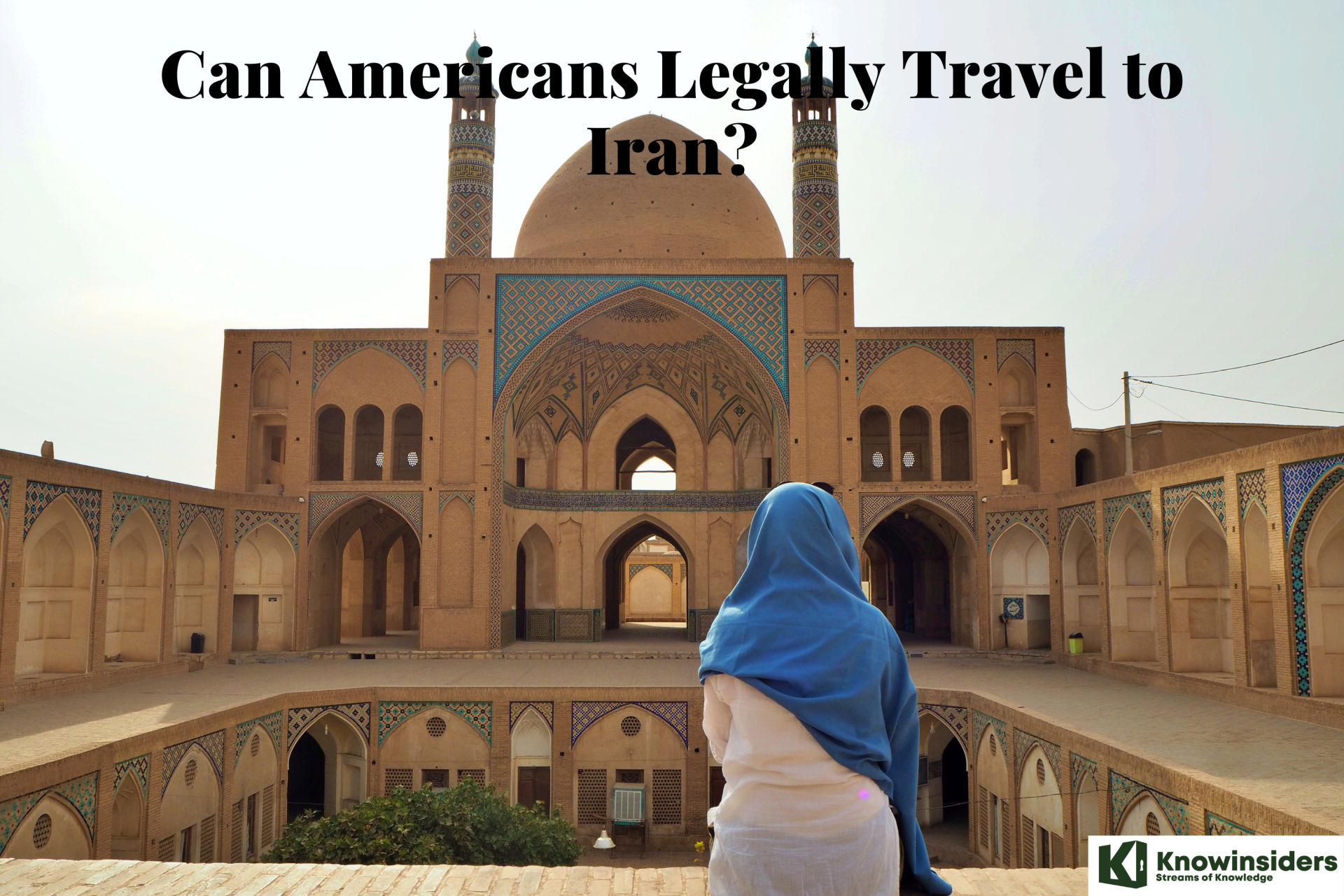 Can American Travel to Iran? Can American Travel to Iran? U.S. citizens may be wondering if they should or can visit Iran right now, given the uncertainty surrounding US-Iranian relations and rumors of changing political ... |


























